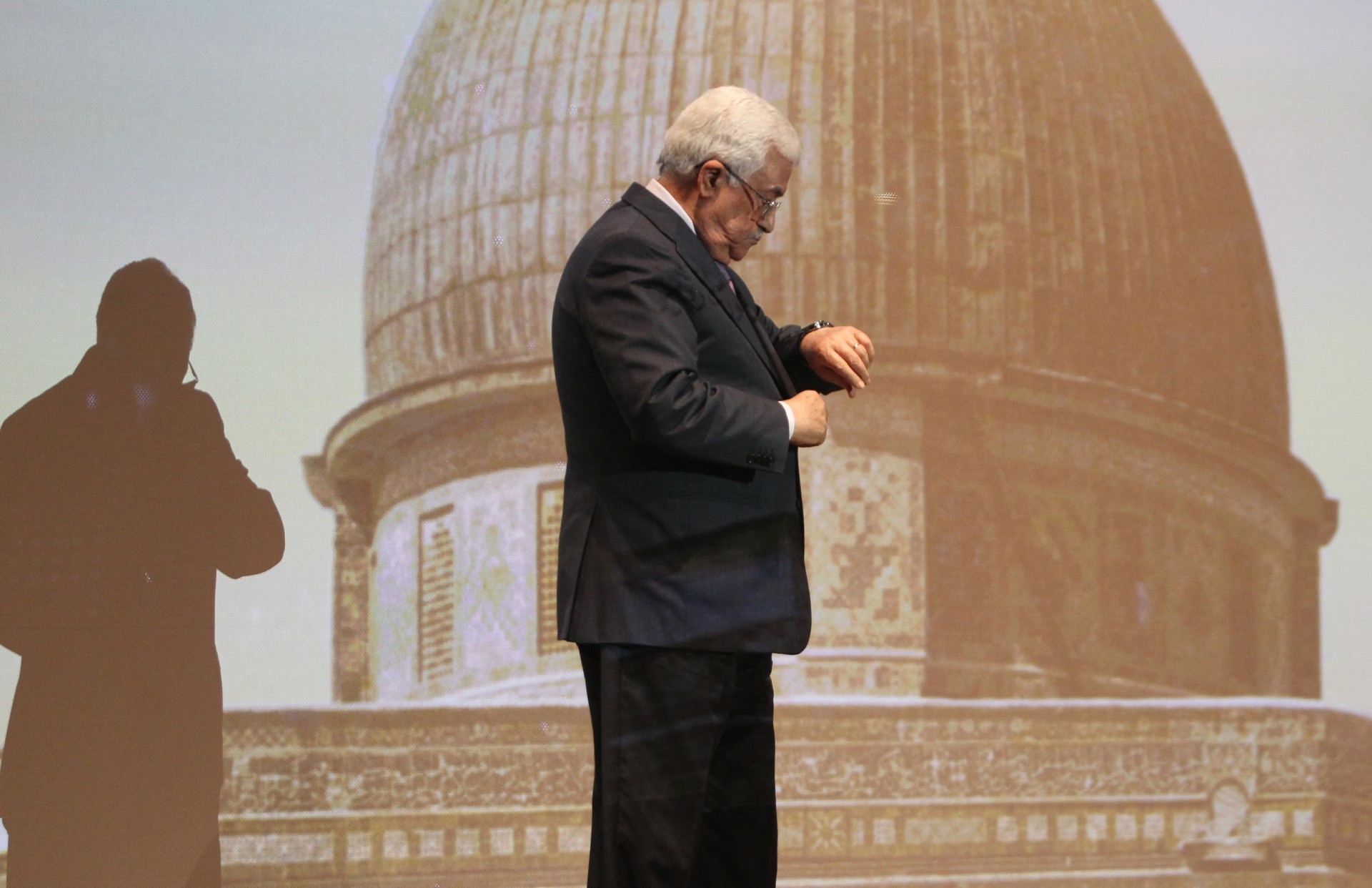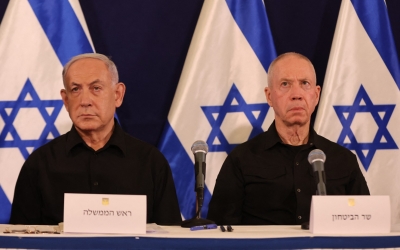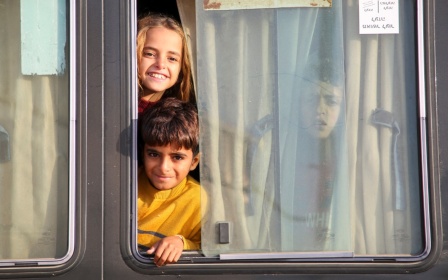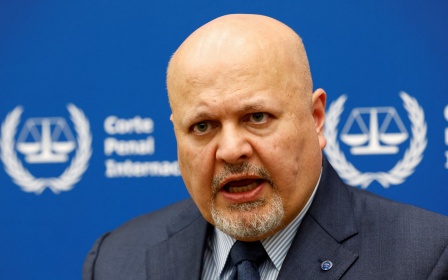The PLO’s patient strategy of turning to ICC paying off with arrest warrants

When Palestine formally joined the International Criminal Court (ICC) nine years ago, officials were keen to stress that the effects take years to materialise.
“I don't want to disappoint our people, but the ICC procedures are slow and long and might face lots of obstacles and challenges and might take years,” said Riyad al-Maliki, the foreign minister of the Palestinian National Authority, better known as Palestinian Authority (PA), at the time.
That lengthy, obstacle-filled process bore fruit on Thursday as the ICC handed out arrest warrants for Benjamin Netanyahu and Yoav Gallant.
The indictments of the Israeli prime minister and former defence minister mark a historic milestone in the pursuit of justice for Palestinians.
The decision to go down the route of international legal justice was a long time in the making.
New MEE newsletter: Jerusalem Dispatch
Sign up to get the latest insights and analysis on Israel-Palestine, alongside Turkey Unpacked and other MEE newsletters
Husam Zomlot, Palestinian ambassador to the United Kingdom, explained that steps were taken to join the ICC following the first Israeli war on Gaza, which began in December 2008 and lasted three weeks.
“We needed a) justice mechanisms and b) deterrence mechanisms. And the best way to do justice and deterrence is to hold war criminals to account,” Zomlot, one of the most prominent Palestinian officials abroad, told Middle East Eye.
“And the most internationally agreed way to hold criminals to account is the International Criminal Court.”
Three days after the war ended, on 21 January 2009, the PA filed a declaration with the ICC seeking to allow the court jurisdiction over the occupied Palestinian territories.
Under Article 12(3) of the Rome Statute - the treaty that established the ICC - non-members of the ICC can file a declaration granting the court jurisdiction to investigate crimes committed within their territory after a specified date. Ukraine has adopted this approach to address alleged Russian crimes.
'To whom are we to complain?'
After much deliberation, the ICC rejected Palestine’s declaration on the grounds that Article 12(3) of the Rome Statute only applied to “states”.
However, when Palestine was recognised as a non-member observer state at the UN following a General Assembly vote in late 2012, it opened up the possibility not only of filing a declaration with the ICC but also of attaining full membership.
It would, for the first time, open up the possibility of Israel, which is not a signatory of the Rome Statute, being investigated for crimes committed on Palestinian soil.
'The best way to do justice and deterrence is to hold war criminals to account'
- Husam Zomlot, Palestinian ambassador to UK
PA President Mahmoud Abbas was strongly deterred from signing the statute by Israel and the US, both of which threatened crippling sanctions.
However, in 2014, after Israel withdrew from US-backed peace negotiations and launched a devastating war that killed 2,310 people in the Gaza Strip, Palestinian minds were made up.
“They attack us and our land every day. To whom are we to complain? The Security Council let us down. Where are we to go?” Abbas told a group of Palestinian leaders as he sat down to sign the Rome Statute in December 2014.
The move was supported by all political factions in Palestine, including Hamas, which knew that its own leaders and actions would likely face investigation by the ICC in future.
“We want to refer to international institutions, and this is one we are referring to, and we’ll complain to these people,” Abbas added before signing the document.
Four months later, the state of Palestine officially became the 123rd member of the ICC.
Israeli and US threats
“The PLO [Palestine Liberation Organisation], the PA and all the national institutions endured a huge cost for that decision,” said Zomlot.
Israel withheld $400m of the PA’s own tax revenues in early 2015 as punishment for pursuing international legal justice.
It even had personal consequences for Zomlot, who previously led the PLO’s mission in the United States.
“Congress made it clear that if the PLO accedes to the ICC and ratifies the Rome Statute, their offices in Washington would be shut.”
This threat was acted on under President Donald Trump’s administration.
“They actually closed the office. And as a result, they kicked me out of the US,” Zomlot said.
He described the US and other Israeli allies as having acted “like The Sopranos”, issuing threats not only against Palestinians but also against ICC judges and prosecutors for investigating Israel.
The years of threats did not stop the ICC from carrying out its work.
'Only the beginning'
In 2021, the ICC opened an official investigation into allegations of war crimes and crimes against humanity committed by Israel and Hamas since June 2014.
Last year, chief prosecutor Karim Khan said the court also had jurisdiction over crimes committed by Hamas in Israel and by Israelis in Gaza during the current war.
It culminated in indictments being sought for the two Israeli leaders and three Hamas leaders, Yahya Sinwar, Ismail Haniyeh and Mohammed Deif.
Haniyeh, the head of Hamas' political wing, was assassinated in Iran on 31 July, and his successor, Sinwar, was killed in Gaza in October. Israel claimed in August to have killed Deif, though Hamas denied the claim.
All 124 members of the Rome Statute are now compelled to arrest Netanyahu and Gallant and hand them over to the ICC.
As they did a decade ago when Palestine signed the Rome Statute, Israeli officials have once again threatened to take action against the PA for its role in the warrants.
Israel's far-right finance minister, Bezalel Smotrich, called for “painful sanctions on the PA and its leaders to the point of its collapse”.
Zomlot said such sanctions formed part of Israel’s “war of extermination” on Palestinians, which included “collapsing the nucleus of the state of Palestine”.
He viewed the arrest warrants as evidence that the slow and arduous process of seeking international legal justice was bearing fruit.
“It was a big sigh of relief for the many, many people who have worked tirelessly towards this,” Zomlot said. “The effort was immense, relentless and accumulative.”
However, he stressed that this was only the beginning of accountability for Israeli war crimes against Palestinians.
“It will end when we see Netanyahu, Gallant and all the war criminals actually behind bars.”
Middle East Eye delivers independent and unrivalled coverage and analysis of the Middle East, North Africa and beyond. To learn more about republishing this content and the associated fees, please fill out this form. More about MEE can be found here.





